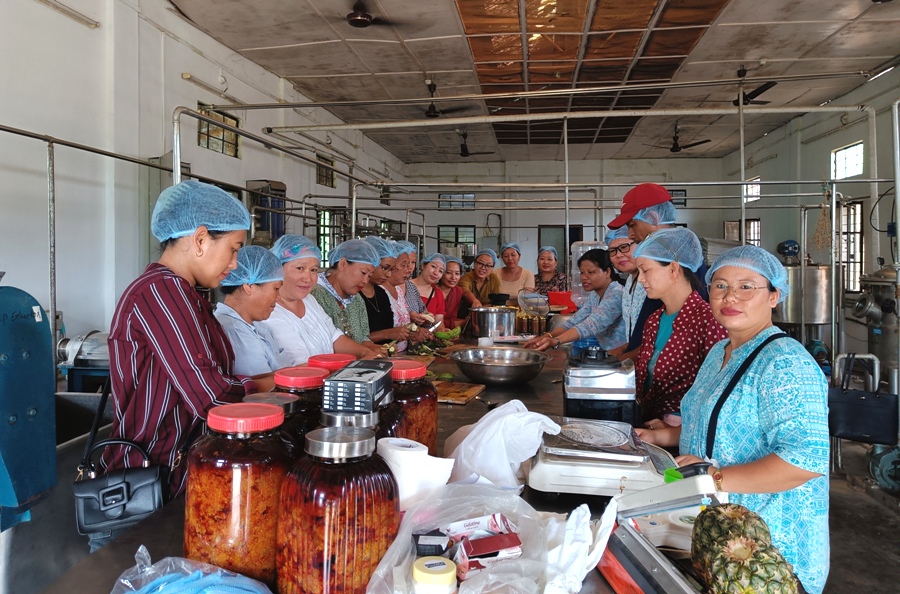ICAR-KVK Dimapur concluded a three-day food processing training for rural youths to promote self-employment in Nagaland.
Published on Aug 25, 2025
By EMN
Share

DIMAPUR — A three-day training programme on “Capacity building through food processing for rural youths” organised by the Indian Council of Agricultural Research (ICAR)-Krishi Vigyan Kendra (KVK) Dimapur concluded on August 22.
According to an update, the programme commenced on August 20 at KVK Dimapur, ICAR Research Complex for NEH Region, Nagaland Centre, and aimed at enhancing the skills of youths in food processing to promote self-employment and entrepreneurship in the state.
Under the guidance of Dr. Phool Kumari, senior scientist and head, KVK Dimapur, the training session included practical sessions on processing seasonal fruits and crops. The participants were trained and equipped with the required skills in the food industry, such as handling seasonal fruits to reduce post-harvest losses, branding, marketing, and registration of processing units with the Food Safety and Standards Authority of India (FSSAI).
Dr. Bendangla Imsong, subject matter specialist/chief technical officer (plant breeding), highlighted to the participants the requirement of food processing to generate employment and uplift the economic status of society. Later, she also led a session on entrepreneurship development through seed production.
Also read: New AKT room at Kohima Science College dedicated
NSEDM to launch free skill training programme in Mokokchung
The hands-on training session was led by course coordinator Dr. Chingakham Sima Chanu on processing fruits such as pineapple, jackfruit, soybean, and banana. The training included scientific preparation of pineapple RTS beverage, jam, jackfruit ready-to-serve beverage, jam, jackfruit papad, jackfruit chips, banana chips, banana jam, soymilk, and tofu making.
She also emphasised to the participants the importance of taking up food processing enterprises to create self-employment and reduce post-harvest losses in seasonal fruits and vegetables using available resources.
The participants expressed their enthusiasm during the training sessions and shared their opinions on attending similar training in the near future. They also felt encouraged to start their own enterprises in food processing, such as soymilk production and tofu making.
A total of 16 rural youths participated in the training programme.